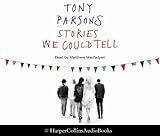Howards End: Matthew Macfadyen interview with Forbes
The full interview can be found HERE.
How did it feel to follow in the footsteps of such great actors, the likes of Helena Bonham Carter, Emma Thompson and Antony Hopkins?
Hayley Atwell: Matthew and I talked about this because we said you know we’ve been asked what does it feel like to be in the shoes of Emma Thompson and Anthony Hopkins and both of us felt really clearly that we just felt safe and how fantastic that they had adapted it before and made us feel that we’re in really good hands here with really strong material and a very beautiful and complex story.
Matthew MacFadyen: I think often people imagine that it’s overly daunting or it’s frightening playing a part that someone as great as he is or another wonderful actor, but it’s actually the reverse. I find it very thrilling and comforting that you’re walking in their footsteps so to speak.
Did you watch the original film?
Matthew MacFadyen: I’d seen the film at the cinema, and I hadn’t read the book. I loved the film very much indeed and that was sort of a period when I’d just got into drama school and I’d written [Antony Hopkins] a letter. I didn’t get a grant to go to drama school, so I wrote lots of begging letters, lots of actors who get into drama schools don’t have the money so you write begging letters. He wrote the most lovely letter back.
Will you watch the show when it airs?
Matthew MacFadyen: I’ve been acting for 22 years, and less and less now I watch what I’ve done. I think the most important part is the acting element and the shooting and being with those people and doing the work, and then if it’s good and people love it and it does well afterwards then that’s a bonus.
What did working with a female director, Hettie MacDonald, bring to this project that perhaps a male director couldn’t have achieved?
Matthew MacFadyen: Hettie MacDonald was just fantastic, really focused and tough and funny and bright and brilliant. I felt very safe in that I trusted her to say immediately if she wasn’t happy or wasn’t believing me or us or the scene or the way we were doing. It was quite rigorous.
What was it like working with Kenneth Lonergan and what did he bring to the original E.M. Forster text?
Matthew MacFadyen: If the script is good, which it was, then it’s just a pleasure because it sort of looks after you as an actor. It’s only when there are duff moments, sometimes you read a script where you think the writer has never said this out loud, you know, it looks good on the page but it’s sort of strange in the mouth. So, fortunately we stuck to the script because it was brilliant.
Matthew MacFadyen: His adaptation, is just brilliant. That was part of the reason why it was such an attractive offer, apart from the fact that it’s a masterpiece book. But having four hours to explore it. The adaptation is quite unsentimental. There are some adaptations that are almost sycophantic towards the material and it didn’t feel like that.
Matthew MacFadyen: On the page it was written like a proper conversation so, you’re interrupting very precisely at certain times. But as an actor it’s terrifically comforting and exciting because it makes you listen to the other person so you’re coming in right on cue.
Why does this text still resonate? Why are audiences still interested in these stories about class?
Matthew MacFadyen: Forster manages to say fantastically profound and pertinent things about men, about the sexes, about money, class, power, pastoral England of that time, empire - really important and ever relevant things without it feeling like he’s making a statement.
- Login to post comments
- 6043 reads






